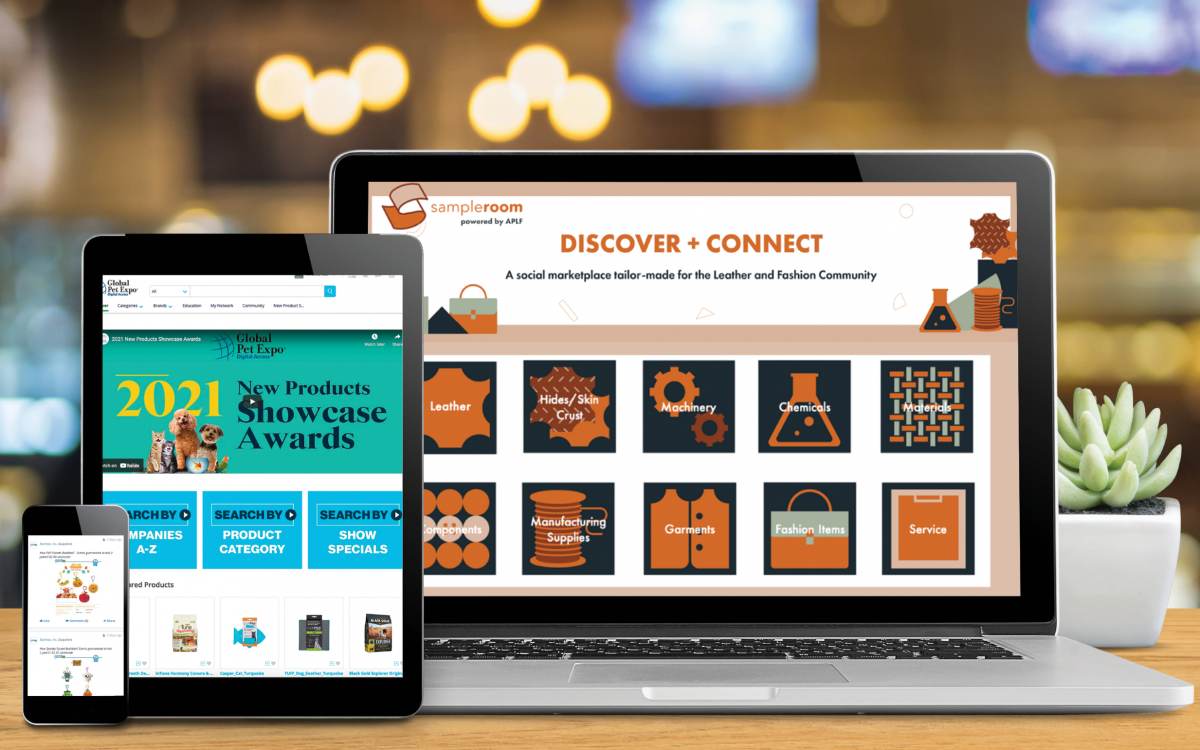
07/15/2021
From Hybrid to 365: Digital Platform Models for Trade Show Organizers
Thought leaders in the event industry have long predicted the emergence of digital marketplace and community platforms as an important force for driving transformation in the industry. In fact, 24/7/365 platforms were predicted to be the most disruptive new technology, according to the 2019 ECEF (Exhibition and Convention Executives Forum) survey of event industry executives.
Balluun has enabled trade show organizers across many different industries to create experiences to support their virtual/hybrid events and 365/year-round/always-on engagement strategies. In conversations with our clients, despite the return of in-person events, the majority remain committed to their digital experience strategy. A key question being discussed and evaluated by these executives is which model to pursue (described below), how to strategically align the virtual experience with the physical event and how to effectively support the effort within the organization.
With Balluun, these models are not mutually exclusive. An organizer can start with one, and transition to another depending on the overall business strategy.
Digital Platform delivering virtual/hybrid event only
Due to the pandemic, many organizers needed a quick replacement of a physical event. It was usually executed by the same event team and followed a similar business model to the physical event. When the event was over, the online site was taken down or closed for access. The main goal here is to deliver a quality experience for those exhibitors and attendees who are not able to attend in person. Even before the pandemic, the industry had already been seeing a slowdown in travel budgets for buyers and sellers to attend physical shows. Therefore, the ability to deliver a virtual alternative has been key.
When running these digital events, most organizers we work with have decided to create a digital brand to help draw distinction from the associated physical event. For example, Global Pet Expo, operated by APPA and PIDC, created the Global Pet Expo Digital Access while the ISSE (International Salon & Spa Exhibition), operated by Professional Beauty Association, created the ISSE Digital Experience.
In addition, having the digital component align with the operational structure of the physical event offers business continuity and flexibility for the organizer as they work to create a fluid experience in response to physical restrictions or changing audience needs.
Digital Platform offering year-round experience
One drawback to the one-off hybrid event model described above is that after investing time and energy into the launch of the platform and building up digital skills and valuable content, turning off the platform leads to a missed opportunity to serve the community over a longer period of time. Therefore, we are seeing many of our customers move from a one-off event-only model to a 365 year-round model. The recognition is that business doesn’t stop after 3 days. Instead, there is a need to enable opportunities to meet, discover and engage throughout the year.
Organizers who pursue this model use slightly different approaches. Some started with a virtual only platform experience and then chose to extend it year-round. Others recognized immediately the value of delivering a 365 experience and have designed the team and goals with a year-round mentality.
For example, Specialty Food Association (SFA), organizer of Fancy Food shows, created a digital marketplace powered by Balluun. The site was initially used to run virtual shows during 2020 and 2021. However, with learning and great success, they are now moving to a year-round online marketplace as an extension of the bi-annual Fancy Food shows (now rebranded as Fancy Food 24/7). This evolution is a good example of an organizer moving from one model to another as the strategy evolves.
Another example is RX (Reed Exhibitions), the organizer of Vision Expo, who recently launched ShopVISION, a digital marketplace for the global vision care industry. The platform hosts Vision Expo+, the digital companion to the physical Vision Expo show. In addition, the platform also hosts weekly featured events and content as part of the marketplace operation to drive community engagement throughout the year.
As organizers continue to gain experience with their digital strategies, we are also seeing increased attention on optimizing for future growth. This includes hiring new resources with strong tech comfort and backgrounds, implementing the right goals and incentives to drive the right behaviors and separating the responsibilities between the digital and physical show teams. These types of investments will help to ensure the new 365 marketplace businesses are setup for success.
While we slowly emerge from the learnings of the pandemic, we continue to see commitment to digital and the hybrid strategy. In addition, the trend towards a 365 platform that either extends the value of the event or is run as a separate business entirely seems inevitable. There is a big opportunity for communities and industries to be served by these B2B digital marketplaces and either the tradeshows or someone else, will take on this role.